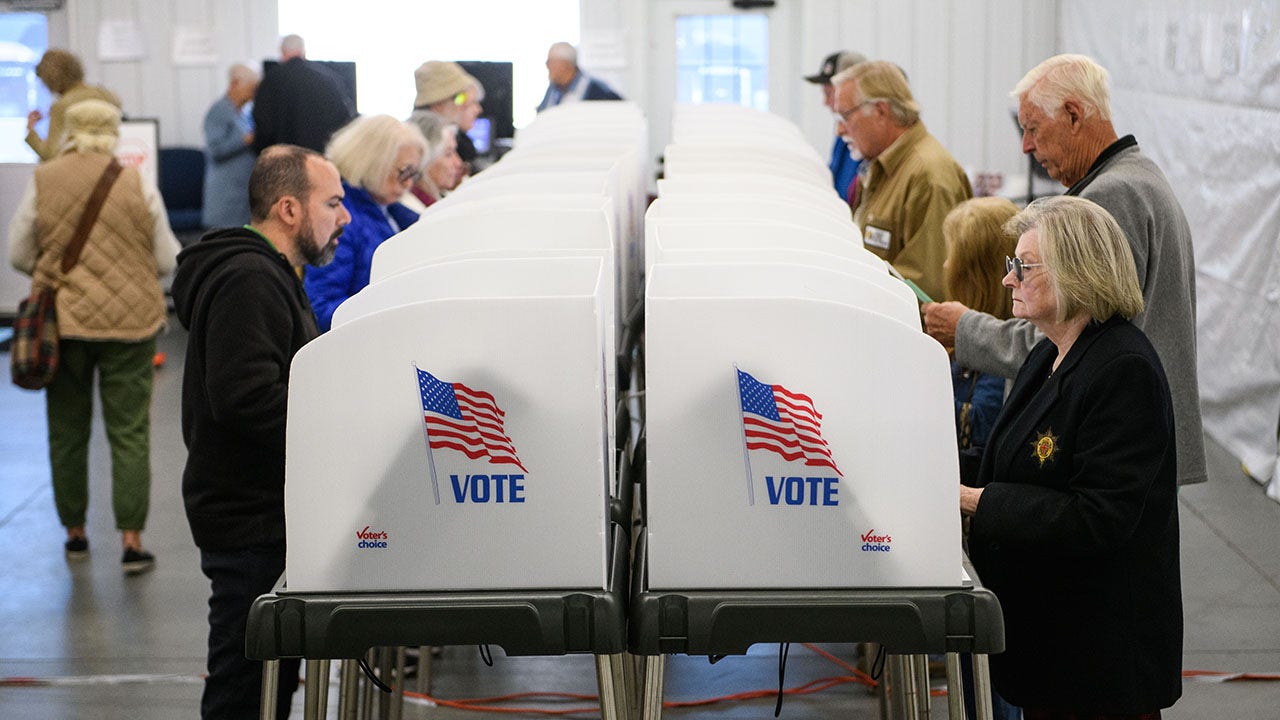Business
In Ireland’s ‘Forgotten County,’ a Tiny Inn Does It Right

The back story of Breac House, a tiny hotel in northwest Ireland’s County Donegal, sounds like a cautionary tale: Two city-slickers, accountants from Dublin, who’d never worked at a hotel or served a scone, decide to open a custom-built, designer property on a remote, windswept peninsula that juts out into the Atlantic Ocean. Cue the wizened locals ready to fleece them, the natural and man-made catastrophes, and you have all the makings of a bad sitcom, with Monocle meets Fawlty Towers as the log line.
The reality is different: Cathrine Burke, 51, and Niall Campbell, 51, have managed to create a remarkable hotel, not by flying in a starchitect from London, stocking the place with fancy products and serving globalized cuisine, but by staying resolutely Donegal. Their guiding principle in selecting materials, products, craftspeople and foodstuffs has been “from Donegal, when it’s the best.”
Underpinning the success of their four-room hotel, which is already full for their 2023 season and quickly filling up for next year, are the local chefs, chandlers, farmers, designers, weavers, potters and soapmakers they work with.
In a place known as Ireland’s “forgotten county” — largely because of its position in the far northwest of the Republic of Ireland, next to Northern Ireland and far from tourist draws like Dublin or Galway — there’s a flourishing and robust ecosystem of great contemporary food, design and craft just starting to become known to the rest of this island nation and to the world. The people behind this are young and old, longtime residents and newcomers, business neophytes and seasoned entrepreneurs.
Take Bernie Murphy, a fashion designer who spent over 20 years working for a local Fruit of the Loom factory, lost her job then struck out on her own, launching collections that have landed her high praise from influential fashion critics. Or Isobel Sangha, a bioengineer who moved home after years in Dublin, and launched the Donegal Natural Soap Company, which incorporates foraged Donegal materials, originally as a way to aid her son, who had infant eczema. Hannah McGuiness is a designer who makes striking and colorful jewelry while also running a design collective and store called Donegal Designer Makers. And then there’s Ciaran Sweeney, a chef from Downings who enjoyed great success in Dublin, then came back home to cook at the Olde Glen Bar, sharing with diners some of his culinary memories from a childhood spent here, next to the sea, with a fisherman grandfather.
Though they are a diverse bunch, there are some common forces at work. Ireland has lurched from boom to bust and back again over the past 30 years. “There’s nothing like a recession to focus the mind,” said Mr. Campbell of Breac House. “It makes people think ‘If I really want to do this, I need to do it right now.’”
Natural inspiration
There is also the inspiration of the land, with its craggy coastlines, broad sandy beaches, gray stone mountains and colorful wildflowers, moss and seaweed. From Breac House’s hillside vista nearly all these elements are visible: To the far left is Dunfanaghy’s Killahoey Beach, which leads to a saltwater inlet that, at low tide, is crossed by horseback riders. Tracking right, after the town center, a small stone bridge connects Breac’s landmass, the Horn Head Peninsula, to the mainland. Finally, all the way southwest, steep dunes lead to Tramore Beach, accessible only by a mile-long hike. The colors and contrasts of the landscape are the obvious inspiration for the region’s most famous product, Donegal tweed.
“What’s distinctive about our tweed is that a more neutral base color is decorated with small flecks of bright colors,” said Kieran Molloy, 37, who, along with his father, runs Molloy & Sons, a tweed-maker in Ardara. “Traditionally these bright colors were made from natural dyes that came from flowers, moss, seaweed and berries that were found here.”
Mr. Molloy studied industrial design in Dublin at the National College of Art and Design, one of the country’s most prestigious design schools, worked in the big city, then lost his job in 2009, when the recession hit hard. His mother had always threatened, “If you don’t go to college, you’ll be stuck out in the shed, weaving like your father.” And, indeed, Mr. Molloy, though college-educated, found himself home anyway and stuck out in the shed. So he and his father joined forces, spun off their own business from the larger family enterprise, and created tweeds that are lighter, brighter and made for today’s consumers, not designed for an era before central heating. They now export their fabric all over the world.
Tony Davidson, 38, worked as a chef in fine restaurants in Belfast for four years. He and his Swedish partner, Lina Reppert, 36, who managed restaurants in Belfast, always dreamed of opening a small place of their own in Donegal. On a visit to Mr. Davidson’s family’s vacation home here a few years ago, they saw a tiny building, part of a pub, that was empty and had a great view of the horseshoe-shaped beach at Downings. After Tony hosted a successful seafood pop-up there, he convinced the owner to rent them the space.
When they opened Fisk Seafood Bar, a local friend said to Mr. Davidson, “You’re only selling fish? Are you out of your mind?” He didn’t mean it as a joke. For years Ireland sent most of its best seafood abroad.
But with places like Fisk cooking direct, delicious, creative food using Donegal’s bounty, all that is starting to change. “We have some of the best crabs in Europe just down the road,” said Mr. Davidson. “We have a guy who dives for amazing scallops and collects them by hand. We have great mussels, oysters and all kinds of fish. People abroad have been buying our products for years, but locals are just starting to rediscover what’s right here, all around them.”
Local touches
Breac House is a kind of living museum of this kind of local food, craft and design. They’ve hosted pop-ups helmed by Mr. Sweeney, Mr. Davidson and other Irish chefs. Their soap comes from Isobel Sangha’s company. Their tweed blankets and couch coverings are handwoven by Eddie Dougherty, one of the last hand-weavers of tweed left in the region — and the world.
Beyond these more obvious local touches, there are also subtle design choices almost impossible to perceive by visitors, but important to Ms. Burke and Mr. Campbell, who live on the premises. Though one facade of their building is thoroughly modern, the proportions of their doors and windows on the entry side are based on a historical longhouse design. Their two-person, wood-fired sauna, which appears modern, sleek and Scandinavian, shares all the defining elements of a traditional Irish sweathouse: a window with a view of the land, a living grass roof and a dark interior.
Though all four guest rooms at Breac House share a subtle and attractive aesthetic, with tan wood, clean lines and comfortable furnishings, it’s the expansive bay, mountain and farmland views from the hillside perch, framed by floor-to-ceiling windows, that dominate the design. There is a small, wooden bench at the window, from which to sit and gaze outside, as well as a terrace attached to each room. (Rooms rent for 355 euros a night, or about $389, breakfast included.) A special two-way compartment allows breakfast to be delivered without opening the door.
These details point to something significant about Breac House: Unlike most businesses the world over, Ms. Burke and Mr. Campbell didn’t design the hotel with a particular demographic or ideal customer in mind. They said they simply built what they thought would be great, and let the customers come if they would.
Mr. Campbell’s hand-drawn map guided me around the peninsula on my morning runs and afternoon bike rides. Ms. Burke’s homemade breakfasts, which include bread she bakes, yogurt she ferments, honey she buys from a beekeeper across the way, and goose eggs from a farmer down the road, are her personal ideal of what guests ought to eat.
During pandemic-induced downtime, Mr. Campbell and Ms. Burke added a fourth room to the hotel, which they believe is the biggest they can become while still staying true to their ideal of a hotel run completely hands-on, by them. They have also added multiday chef-driven experiences to replace the one-night pop-up dinners they previously hosted. Breac House visitors can now meet guest chefs not just for a few words after dinner, but over the course of three days, visiting nearby farms together, eating meals and sharing drinks. (The cost for two nights lodging and breakfast, as well as two dinners and excursions, is 2,950 euros for two.)
One dinner I had, cooked by the chef Cuan Greene, 30, who worked at Noma and was later head chef at a renowned Dublin restaurant, Bastable, focused on local products like oysters, turbot, ramson and rhubarb.
Breac House’s success, so evident at this meal, presents a perhaps unsolvable dilemma: How to provide this level of engagement and intimacy to the many more guests who want it, without compromising the essence of what a place like Breac House has created.
But, said Mr. Campbell, “After two years of Covid shutdowns and interruptions, there are much worse problems we can imagine.”
Follow New York Times Travel on Instagram and sign up for our weekly Travel Dispatch newsletter to get expert tips on traveling smarter and inspiration for your next vacation. Dreaming up a future getaway or just armchair traveling? Check out our 52 Places to Go in 2023.

Business
Commentary: MAHA report's misrepresentations will harm public health and hit consumers' pocketbooks

Serious followers of healthcare policy in the U.S. didn’t expect much good to emerge from its takeover by Donald Trump and his secretary of Health and Human Services, the anti-vaccine activist Robert F. Kennedy Jr.
But the agency and its leadership managed to live down to the worst expectations May 27, when HHS released a 73-page “assessment” of the health of America’s children titled “The MAHA Report” (for “Make America Healthy Again”).
A sloppier, more disingenuous government report would be hard to imagine. Whatever credibility the report might have had as a product of a federal agency was shattered by its obvious errors, misrepresentations and outright fabrications of source materials, some of it plainly the product of the authors’ reliance on AI bots.
I, and my co-authors, did not write that paper.
— Epidemiologist Katherine Keyes says a citation to her work by the MAHA report was fabricated
At least seven sources cited in the report do not exist, as Emily Kennard and Margaret Manto of the journalism organization NOTUS uncovered. HHS hastily reissued the report with some of those citations removed, but without disclosing the changes — an extremely unkosher action in the research community.
“I, and my co-authors, did not write that paper,” epidemiologist Katherine M. Keyes of Columbia told me by email, referring to a citation to a purported paper about anxiety among American adolescents resulting from the COVID pandemic. “It does make me concerned given that citation practices are an important part of conducting and reporting rigorous science.”
Keyes said she has done research on the topic at hand: “I would be happy to send this information to the MAHA committee to correct the report, although I have not yet received information on where to reach them,” she said.
We’ll go deeper into the fabrication fiasco in a moment. What’s important is its context: concerted attacks by Kennedy and his associates on the fundamentals of public health in America.
Those attacks have profound implications not only for Americans’ health, but on pocketbook issues and the U.S. economy generally. HHS bowed toward the latter issue by asserting in the report that the health profile of American children poses “a threat to our nation’s health, economy, and military readiness.”
As it happens, the recent actions at HHS and its subagencies, the Food and Drug Administration and the Centers for Disease Control and Prevention, increase those threats.
Take the agencies’ May 20 decision to remove COVID boosters from the CDC’s list of recommended vaccinations for healthy children and pregnant women. The decision opens the door for insurance companies to start charging full price for the shots, rather than covering them without copays as the law requires for preventive services.
That could mean out-of-pocket charges of $100 or more each booster, which could itself discourage families from getting vaccinated. This is a reminder of how family economics affect health.
The original version of RFK Jr.’s MAHA report cited this paper by Katherine Keyes and associates about adolescents’ pandemic-era mental health. The paper doesn’t exist; the citation to the Journal of the American Medical Assn. goes to a page saying it can’t be found. However …
(HHS)
The MAHA report attributes the rise in childhood obesity and diabetes in part to ultraprocessed foods, or UPFs. But it’s silent on what experts call the “social determinants of disease,” which are heavily related to economics. The report doesn’t mention “food deserts,” mostly low-income neighborhoods in which “children do not have access to anything other than UPFs, … or the cost of fresh food vs. the hyperpalatable and cheap UPFs,” observed the Delaware Academy of Medicine in its gloss on the report.

… after the fabrication was exposed, Heath and Human Services reissued the report, removing the citation without explanation.
(HHS)
And although the report mentions that safety net programs such as the Supplemental Nutrition Assistance Program — SNAP, or food stamps, school lunch and breakfast programs, and the Special Supplemental Nutrition Program for Women, Infants, and Children, or WIC, could play a role in promoting healthy eating, it doesn’t mention that those programs face severe budget cuts from the Trump White House.
Last month, HHS canceled nearly $800 million in grants to the pharmaceutical company Moderna for the development of a human vaccine against bird flu, part of a Biden administration effort to prepare for possible future pandemics, the potential social and economic impact of which should be self-evident, given our experience with COVID. Bird flu already has devastated the dairy and poultry industries in many regions and sickened dozens of farmworkers.
There was some hope in the research community that sound science might still live at HHS because some HHS appointees had scientific or medical credentials that Kennedy lacked. Those hopes get dashed on a regular basis.
On Sunday, for instance, FDA Commissioner Marty Makary — a former professor of medicine at Johns Hopkins — was reduced to incoherence when CBS’ “Face the Nation” moderator Margaret Brennan reminded him that on May 20 he co-authored a report in the New England Journal of Medicine that identified pregnancy as factor increasing the risk of “severe COVID-19” — warranting that pregnant women get the vaccine.
“Yet seven days later,” Brennan said, Makary joined with Kennedy in a video announcement recommending against giving pregnant women the booster. “So what changed in the seven days?” Makary argued that only 12% of pregnant women got the shot last year, “so people have serious concerns.”
What he didn’t say was that those concerns have been ginned up by FDA critics — including Makary — and vaccine opponents, even though clinical trials involving tens of thousands of subjects have validated the recommendation that pregnant women get the vaccine.
That brings us back to the MAHA report.
Let’s start with its core assertion — that “today’s children are the sickest generation in American history.” As soon as the report was issued, this trope was picked up uncritically by the news media, before the report’s citation errors were discovered. But it’s undoubtedly wrong, the product of cherry-picking official statistics and ignoring what they really say.
An attack on childhood vaccination gets a subject heading all its own in this report, which asserts that the number of recommended vaccines for children by 1 year of age has increased from three in 1986 to 29 now, including vaccines for pregnant mothers.
Pediatrician Vincent Iannelli has ably punctured this claim, which he identifies as anti-vax “propaganda.”
The report reaches its count of 29 by including some vaccines given to children older than 1 year and double-counting shots such as the RSV vaccine, given to either the mother or the infant, not both. An honest count would be as few as 17, not all of which are injections. The report also counts combination vaccines such as MMR and TDaP as three shots rather than one.
In pushing the “sickest generation” trope, the report glides over the heath threats faced by children — and adults — before vaccines were available for specific diseases. In the U.S., measles cases averaged more than 530,000 per year throughout the 20th century; as of 2023, the average was 47, according to the CDC.
Mumps fell from more than 162,000 cases annually to 429 and rubella from nearly 48,000 to three. Whooping cough, or pertussis, fell from nearly 201,000 cases to 5,611. And polio, the fearsome nemesis of American families in the 1950s, from 16,300 to zero.
One can trace the “sickness” of children in bygone generations through child mortality statistics. In 1900, the average life expectancy of a 1-year-old in the U.S. was about 56 years; that bespeaks a morbid population of infants. In 1950 it was still only about 70. Now it’s 79.
For all that the MAHA report purports to identify the leading health threats to America’s kids — processed foods, environmental chemicals, vaccines — it totally ignores what we know to be the single biggest cause of childhood mortality in the U.S.: firearms.
The CDC has reported that in 2021, firearm injuries killed 2,571 children. That rate of 3.7 deaths per 100,000 children aged 17 and younger was an increase of 68% since 2000. The firearm death rate of 6.01 per 100,000 children aged 1-19 was 10 times the rate in Canada and 20 times the rates in France and Switzerland. Why the silence in the MAHA report? What does that say about how far you should trust the MAHA team at HHS?
As for the multiple false citations in the report, they point to the sheer irresponsibility of a federal agency’s outsourcing of research to AI.
I asked HHS for an explanation of how these errors got into the MAHA report, but I received no reply. White House spokeswoman Karoline Leavitt, however, responded to a reporter’s question about the fiasco by claiming there were “formatting issues” with the report.
Her excuse made me laugh, because it was the same excuse offered by the big law firm Latham and Watkins when it was caught submitting AI fabrications to a judge as part of a legal filing, as I reported recently. In neither case did the excuses explain how “formatting issues,” whatever that means, resulted in the fabrication of source citations.
HHS attributes the report to a 14-member “Make America Healthy Again” commission, composed mostly of cabinet members and other officials with no responsibility for or expertise in public health, such as the secretaries of Housing and Urban Development, Education, Agriculture and Veterans Affairs and directors of White House budget and economic offices. Makary and Bhattacharya are on the panel. They lent their names and reputations to this product, much to their discredit.
But it’s unclear about who actually put pen to paper. Some of its language can be traced back to Kennedy’s own words. The report’s assertion that “today’s children are the sickest generation in American history” was picked up and amplified by media coverage of the report’s release, even though it’s not supported by the facts. It is a verbatim echo of a claim Kennedy has made repeatedly, however, mostly as a plank in his anti-vaccination platform. It was part of the title of a book his anti-vaccine organization, Children’s Health Defense, issued in 2018 (“The Sickest Generation”).
The most frightening aspect of the MAHA report is that it’s likely to be the blueprint for a comprehensive attack on public health; scarier in that news media and political leaders are citing it as though it has scientific value. It’s so infected with falsehoods, misrepresentations and ideological blinkers that it will only subject the health of American children to the greatest risk they’ve faced in, yes, American history.
Business
Disney to cut hundreds of employees in latest round of layoffs

Walt Disney Co. launched another deep round of layoffs on Monday, notifying several hundred Disney employees in the U.S. and abroad that their jobs were being eliminated amid an increasingly difficult economic environment for traditional television.
People close to the Burbank entertainment giant confirmed the cuts, which are hitting film and television marketing teams, television publicity, casting and development as well as corporate financial operations.
The move comes just three months after the company axed 200 workers, including at ABC News in New York and Disney-owned entertainment networks. At the time, the division said it was trimming its staff by 6% amid shrinking TV ratings and revenue.
Disney declined to specify how many workers were losing their jobs. The cutbacks — the fourth round of layoffs in less than a year — come after Disney Chief Executive Bob Iger acknowledged to Wall Street that Disney had been pumping out too many shows and movies to compete against Netflix.
The programming buildup accelerated as the company prepared to launch Disney+ in late 2019, and it bulked up its staff to handle the more robust pipeline.
But the company has since retrenched, recognizing the need to focus on creating high-quality originals that meet Disney’s once lofty standards.
Disney has faced significant budget pressures after promising investors that its direct-to-consumer services — Disney+, Hulu and ESPN+ — would achieve profitability last year. The company lost billions of dollars over several years in its strategic shift to streaming, but it reached its goal to make money on streaming last fall.
Still, streaming subscribers can be fickle, creating a daunting new reality for the company that could long count on cable TV subscriptions as one of its most reliable economic pillars. Cord-cutting has taken a heavy toll.
The entertainment giant — one of Southern California’s largest private sector employers — has eliminated more than 7,000 jobs since 2023.
The traditional TV and film units felt the brunt of the downsizing during the last year. In July, the company slashed about 140 workers, primarily in its Disney entertainment unit. The company’s TV stations also lost staff members and ABC News shed about 40 employees last October.
ABC News largely escaped this week’s cuts, according to one knowledgeable person who was not authorized to discuss the internal moves.
ABC News still boasts healthy audiences for its newscasts, but the ABC television network and Disney-owned entertainment channels have seen dramatic viewer defections as consumers switch to streaming services, including Netflix, Paramount+ and Disney+.
ABC’s prime-time schedule has lost considerable steam. For the just-ended broadcast television season, ABC mustered only three shows in Nielsen’s top 20 rankings. “Monday Night Football on ABC” ranked seventh by averaging more than 10 million viewers, “Saturday Night Football” ranked 18th with 7.4 million viewers and freshman drama “High Potential” made the cut at 20th with an average audience of 7.1 million, according to Nielsen.
Monday’s eliminations come three weeks after Disney presented its fall lineup to advertisers, leaning heavily on its sports stars including Peyton and Eli Manning rather than actors from its entertainment programming.
ESPN was spared the ax as the sports unit is preparing for its high-stakes launch this fall of a stand-alone ESPN streaming service, the knowledgeable person said.
The move comes amid a strong run for Disney’s film studio, which has celebrated blockbuster box office results from its live-action “Lilo & Stitch,” which has earned $610 million in ticket sales globally, according to Box Office Mojo.
A month ago, Disney issued strong fiscal second-quarter earnings. The company reported $23.6 billion in revenue for the three months that ended March 29, a 7% increase compared with the same quarter a year earlier. Earnings before taxes totaled $3.1 billion, up $2.4 billion from last year.
Hollywood trade site Deadline first reported the news of the latest Disney cuts.
The landscape has been increasingly challenging for traditional companies. In addition to Disney, Warner Bros. Discovery, Paramount Global and even such tech companies as Amazon and Apple have fired workers.
In late May, NBCUniversal cut 54 jobs in Los Angeles, according to state employment records. Six Flags Entertainment Corp. laid off 140 workers.
Disney shares closed down 9 cents to $112.95.
Business
The Imports the U.S. Relies On Most From 140 Nations, From Albania to Zimbabwe

President Trump’s on-and-off tariffs have created deep uncertainty about the cost of imported goods — and it’s not always clear what goods will be most affected with any given country.
The largest U.S. imports from many countries are oil and gas, electronics, cars and pharmaceuticals. But there’s another way to look at what Americans import: trying to measure a country’s distinct contribution to the U.S.’s total needs.
For example, China’s largest exports to the U.S. — by dollar value — are electronics. But the U.S. also imports large quantities of electronics from elsewhere. Nearly 100 percent of imported baby carriages, however, come from China.
Switzerland, meanwhile, is responsible for nearly all of America’s imported precious metal watches. Ethiopia, on the other hand, sends the U.S. around 2 percent of its imported knit babies’ clothes — but that’s a larger share than for any other item it exports to the U.S.
The table below shows the item the U.S. relies on most from each of 140 trading partners. (We took out items that the U.S. also exports in large quantities, such as petroleum.)
What the U.S. is most reliant on from each country
| COUNTRY | ITEM | Pct. of U.S. imports from here |
|
|---|---|---|---|
| Canada | Live pigs | >99% | |
| Peru | Calcium phosphates | >99% | |
| South Africa | Chromium ore | 98% | |
| Switzerland | Precious metal watches | 98% | |
| China | Baby carriages | 97% | |
| Mexico | Self-propelled rail transport | 94% | |
| Portugal | Natural cork articles | 93% | |
| India | Synthetic reconstructed jewelry stones | 89% | |
| Italy | Vermouth | 86% | |
| Indonesia | Palm oil | 85% | |
| Madagascar | Vanilla | 80% | |
| Turkey | Retail artificial filament yarn | 79% | |
| Brazil | Semi-finished iron | 76% | |
| Vietnam | Coconuts, brazil nuts, and cashews | 75% | |
| Australia | Sheep and goat meat | 74% | |
| New Zealand | Misc. animal fats | 73% | |
| Gabon | Manganese ore | 71% | |
| Chile | Refined copper | 71% | |
| Netherlands | Bulbs and roots | 70% | |
| Spain | Olive oil | 62% | |
| Taiwan | Tapioca | 62% | |
| Argentina | Groundnut oil | 60% | |
| Colombia | Cut flowers | 60% | |
| Bolivia | Tungsten ore | 59% | |
| Dominican Republic | Rolled tobacco | 59% | |
| Cote d’Ivoire | Cocoa paste | 59% | |
| Germany | Felt machinery | 58% | |
| Finland | Cobalt oxides and hydroxides | 56% | |
| Japan | Pianos | 52% | |
| Israel | Phosphatic fertilizers | 50% | |
| Philippines | Coconut oil | 50% | |
| France | Insect resins | 50% | |
| Thailand | Sugar preserved foods | 47% | |
| Malaysia | Rubber apparel | 46% | |
| Ireland | Sulfonamides | 45% | |
| Pakistan | Light mixed woven cotton | 43% | |
| Singapore | Glass with edge workings | 39% | |
| Guatemala | Bananas | 38% | |
| Ecuador | Cocoa beans | 38% | |
| South Korea | Rubber inner tubes | 33% | |
| Jamaica | Aluminum ore | 33% | |
| Bangladesh | Non-knit babies’ garments | 31% | |
| Austria | Handguns | 29% | |
| United Kingdom | Antiques | 28% | |
| Cambodia | Gum coated textile fabric | 25% | |
| Nicaragua | Rolled tobacco | 24% | |
| Guyana | Aluminum ore | 24% | |
| Ukraine | Seed oils | 24% | |
| Belgium | Flax woven fabric | 22% | |
| Bahrain | Stranded aluminum wire | 22% | |
| Sri Lanka | Coconut and other vegetable fibers | 21% | |
| Morocco | Barium sulphate | 20% | |
| Romania | Steel ingots | 19% | |
| Norway | Carbides | 19% | |
| Sweden | Stainless steel ingots | 17% | |
| Costa Rica | Bananas | 16% | |
| Honduras | Molasses | 16% | |
| Paraguay | Wood charcoal | 16% | |
| Denmark | Casein | 15% | |
| Tunisia | Pure olive oil | 15% | |
| Russia | Phosphatic fertilizers | 15% | |
| Fiji | Water | 15% | |
| Hong Kong | Pearls | 13% | |
| Nepal | Knotted carpets | 13% | |
| Poland | Processed mushrooms | 12% | |
| Lebanon | Phosphatic fertilizers | 12% | |
| Croatia | Handguns | 12% | |
| Bulgaria | Non-retail combed wool yarn | 12% | |
| Laos | Barium sulphate | 12% | |
| Mozambique | Titanium ore | 11% | |
| Ghana | Cocoa beans | 11% | |
| Bahamas | Gravel and crushed stone | 10% | |
| Greece | Dried, salted, smoked or brined fish | 10% | |
| Jordan | Knit men’s coats | 10% | |
| Czech Republic | Rolling machines | 10% | |
| El Salvador | Molasses | 10% | |
| Egypt | Spice seeds | 10% | |
| United Arab Emirates | Raw aluminum | 9% | |
| Uganda | Vanilla | 9% | |
| Nigeria | Raw lead | 9% | |
| Uruguay | Bovine, sheep, and goat fat | 9% | |
| Latvia | Book-binding machines | 9% | |
| Kazakhstan | Ironmaking alloys | 8% | |
| Cameroon | Cocoa paste | 8% | |
| Lithuania | Wheat gluten | 8% | |
| Oman | Metal office supplies | 8% | |
| Hungary | Seed oils | 7% | |
| Belize | Molasses | 7% | |
| Faroe Islands | Non-fillet fresh fish | 6% | |
| Qatar | Pearls | 6% | |
| Myanmar | Misc. knit clothing accessories | 5% | |
| Zambia | Precious stones | 5% | |
| Slovenia | Packaged medications | 5% | |
| Senegal | Titanium ore | 5% | |
| Algeria | Cement | 4% | |
| Haiti | Knit T-shirts | 4% | |
| Kenya | Titanium ore | 4% | |
| Liechtenstein | Iron nails | 4% | |
| Georgia | Ironmaking alloys | 4% | |
| Liberia | Rubber | 4% | |
| Serbia | Rubber inner tubes | 4% | |
| Iceland | Fish fillets | 4% | |
| Democratic Republic of the Congo | Refined copper | 3% | |
| Botswana | Diamonds | 3% | |
| Chad | Insect resins | 3% | |
| Zimbabwe | Leather further prepared after tanning or crusting | 3% | |
| Luxembourg | Polyamide fabric | 3% | |
| Panama | Non-fillet fresh fish | 3% | |
| Albania | Ironmaking alloys | 3% | |
| Estonia | Fishing and hunting equipment | 2% | |
| Ethiopia | Knit babies’ garments | 2% | |
| Namibia | Wood charcoal | 2% | |
| Venezuela | Processed crustaceans | 2% | |
| Slovakia | Rubber tires | 2% | |
| Lesotho | Knit men’s shirts | 2% | |
| Tanzania | Precious stones | 2% | |
| Papua New Guinea | Vanilla | 1% | |
| Mauritius | Processed fish | 1% | |
| Saudi Arabia | Iron nails | 1% | |
| Moldova | Wine | ||
| Suriname | Non-fillet fresh fish | ||
| Angola | Pig iron | ||
| Armenia | Diamonds | ||
| Trinidad and Tobago | Non-fillet fresh fish | ||
| Macau | Knitted hats | ||
| North Macedonia | Curbstones | ||
| Togo | Fake hair | ||
| Bosnia and Herzegovina | Non-knit women’s coats | ||
| Republic of the Congo | Antiques | ||
| Azerbaijan | Ironmaking alloys | ||
| Iraq | Antiques | ||
| Libya | Misc. vegetable products | ||
| Cyprus | Olive oil | ||
| Kuwait | Ironmaking alloys | ||
| Malta | Air conditioners | ||
| British Virgin Islands | Diamonds | ||
| Brunei | Knit T-shirts | ||
| Cayman Islands | Phones | ||
| Equatorial Guinea | Knitted hats | ||
| Sint Maarten | Hard liquor |
Curious where the U.S. imports a particular item from? You can look it up below.
Searchable table
| Computers $138.5 billion in imports | ||
| Mexico | 35% | |
| China | 26% | |
| Taiwan | 19% | |
| Vietnam | 11% | |
| Thailand | 5% | |
| Phones $119 billion | ||
| China | 42% | |
| Vietnam | 17% | |
| Mexico | 9% | |
| India | 7% | |
| Thailand | 7% | |
| Packaged medications $100.4 billion | ||
| Ireland | 16% | |
| Switzerland | 12% | |
| India | 12% | |
| Italy | 7% | |
| China | 6% | |
About the data
We analyzed U.S. International Trade Commission data on goods imported for consumption in 2024. We used product descriptions from the Observatory of Economic Complexity to label the goods, and edited these descriptions lightly.
We grouped goods using the first four digits of their code in the Harmonized Tariff Schedule, which lists categories of products.
We excluded goods that are widely produced in the U.S., using export data to remove goods where the U.S. exports at least 25 percent of what it imports by value.
We included only trading partners that export at least $50 million of goods each year to the U.S.
-

 Movie Reviews1 week ago
Movie Reviews1 week agoMOVIE REVIEW – Mission: Impossible 8 has Tom Cruise facing his final reckoning
-

 Maryland1 week ago
Maryland1 week agoMaryland, Cornell to face off in NCAA men’s lacrosse championship game
-

 News1 week ago
News1 week agoHarvard has $52,000,000: Trump mounts attack, backs foreign student enrolment ban
-

 News1 week ago
News1 week agoVideo: The Counties Where Trump Made Gains
-

 Politics1 week ago
Politics1 week agoTrump admin asking federal agencies to cancel remaining Harvard contracts
-

 Politics1 week ago
Politics1 week agoTrump honors fallen American heroes, praises God in Memorial Day address: 'Great, great warriors'
-

 Indiana1 week ago
Indiana1 week ago‘Disrespect’: Fever coach fumes at refs after Caitlin Clark didn’t get foul call
-
World1 week ago
Russia hits Kyiv with massive drone and missile attack amid prisoner exchange















